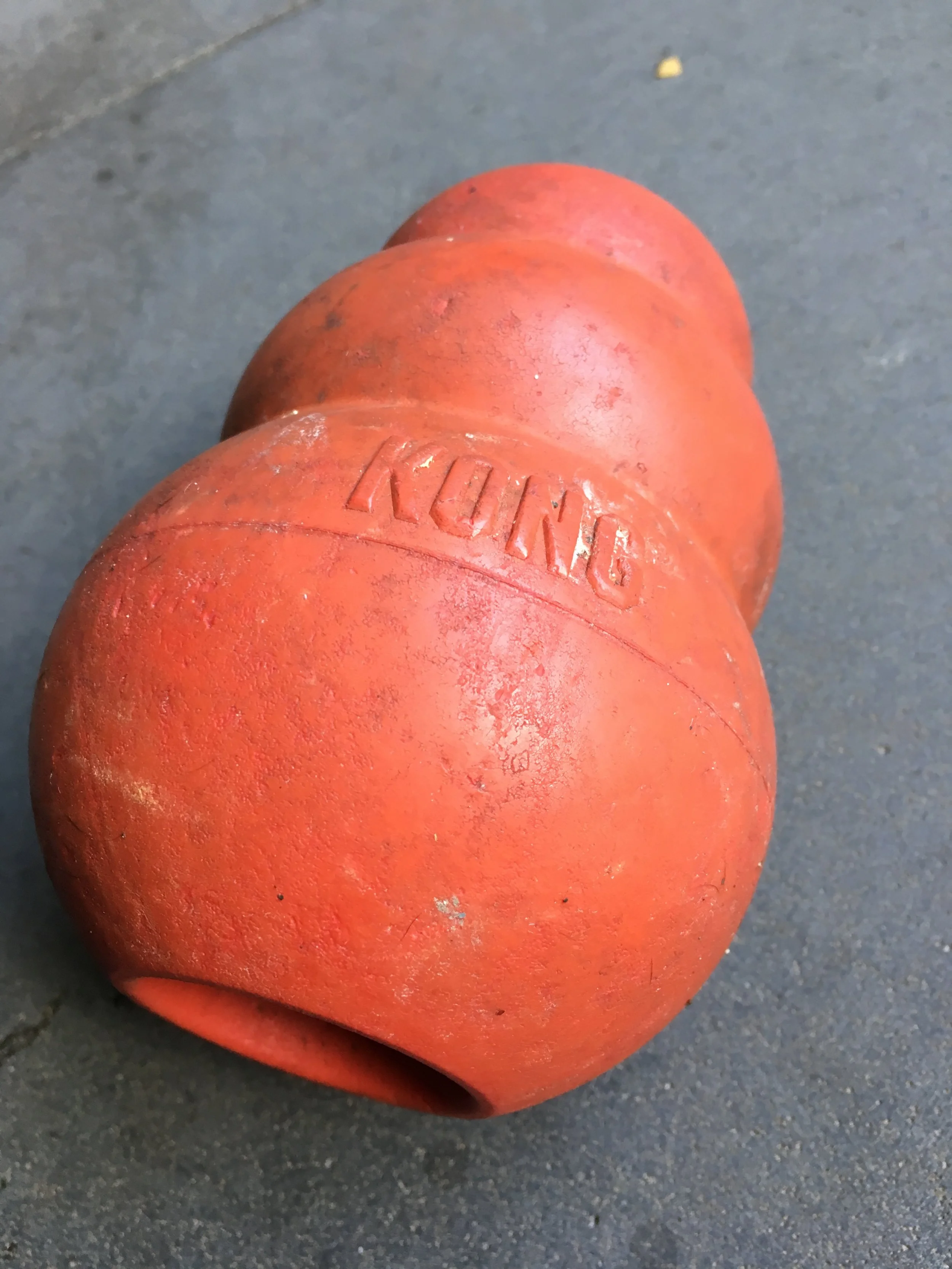Biting, nipping and chewing
This advice is general. You should consider seeking expert advice for your situation.
Preventing or managing biting, nipping and chewing - even mouthing - is important not only for your couch, shoes and garden, but also for your dog's health and welfare, and everyone's safety.
This behaviour often starts as an initially ‘amusing’ game, but can very rapidly escalate into expensive, annoying or even dangerous behaviour that could end with serious injury or even death.
This potentially dangerous behaviour has a range of causes. But no matter how it develops, it can be a very difficult problem solve if biting becomes an effective and rewarding behaviour for the dog. If you don’t prevent this behaviour or manage it well, some form of preventative physical control, like a muzzle, combined with very mindful, behavioural interventions may be the safest and most effective way of managing the problem.
Common causes of biting, chewing and nipping
Some individual dogs or breeds, like cattle dogs, may have a stronger inclination to nip or bite. This doesn't excuse the behaviour. It means owners must be even more vigilant and manage the behaviour more assiduously.
Biting, chewing and nipping commonly has one or more of the following causes:
Prevent and manage biting, chewing and nipping
Don't wait for a problem. Start with good habits in that very short window when your dog is a puppy - it's easier by far!
To prevent or minimise this behaviour, adopt a holistic approach to the problem and implement all of these tips:
A bone is a useful way to provide calories and mental stimulation during feeding time, and an appropriate outlet for the dog to chew.
Start with good, common-sense, ‘whole-of-life’ rules and boundaries - like no barking and no jumping - and the absolutely essential ‘contact on your terms’ or ‘by invitation only’. Make sure you are clear about your terms - calm, quiet, no teeth on skin or cloth.
Don't reward the behaviour. Immediately withdraw verbal, physical and eye contact, and quietly and calmly withdraw the dog from the stimulus or withdraw the stimulus from the dog.
Don’t waste your breath shouting at the dog. Shouting and screaming may be rewarding too
Don’t excuse nipping and biting as “puppy” behaviour - puppies know very quickly what you will or won’t accept.
Don't wait for games and other behaviour to get out of control. Nip it in the bud the second a line is crossed. When the rules are broken, end all interaction immediately.
Never play tug-of-war games - the game rewards exactly the behavior you do not want to encourage. It is irrelevant whether you ensure you always 'win'. It’s also irrelevant that ‘the dog enjoys it’ - enjoyment should come from something that is meaningful and uses the dog’s intelligence and problem-solving skills.
Provide plenty of mental and physical stimulation that adheres to the good rules. Interact with the dog on your walks so he uses his nose and solves problems.
Provide appropriate outlets for chewing and teething - like stuffed Kongs. If you are like me and are comfortable giving your dog raw bones, provide them as part of your dog's overall feed. Raw chicken and lamb bones can be gentler on sensitive stomachs than beef bones.
Don't let your dog have shoes or thongs, wood, or other objects or materials that are commonly used to make items in the home. The things the dog is allowed to have (on condition they don’t break the rules and you maintain the item’s value and your status by controlling access to the thing) should be safe and appropriate.
Reduce anxiety by providing proper leadership that allows a dog to trust you and relax. For example, if 'separation anxiety' is a problem, tackle that first and the symptoms are likely to reduce over time.
Sticks can cause expensive vet bills and allow a dog to control a resource.
Own everything. Make sure that appropriate toys are only available when you can provide them and can interact meaningfully with the dog. Don't allow the dog to pick up sticks - which additionally can cause a hefty vet bill - or entertain himself with objects that you haven't provided. Don't leave toys out, unless they are used for appropriate mental stimulation, like using Kongs at feeding time.
Tug of war games reinforce exactly the behaviour you don't want.
If you'd like to learn more about how to prevent or tackle biting, chewing or nipping, click on the button below to get in touch.




